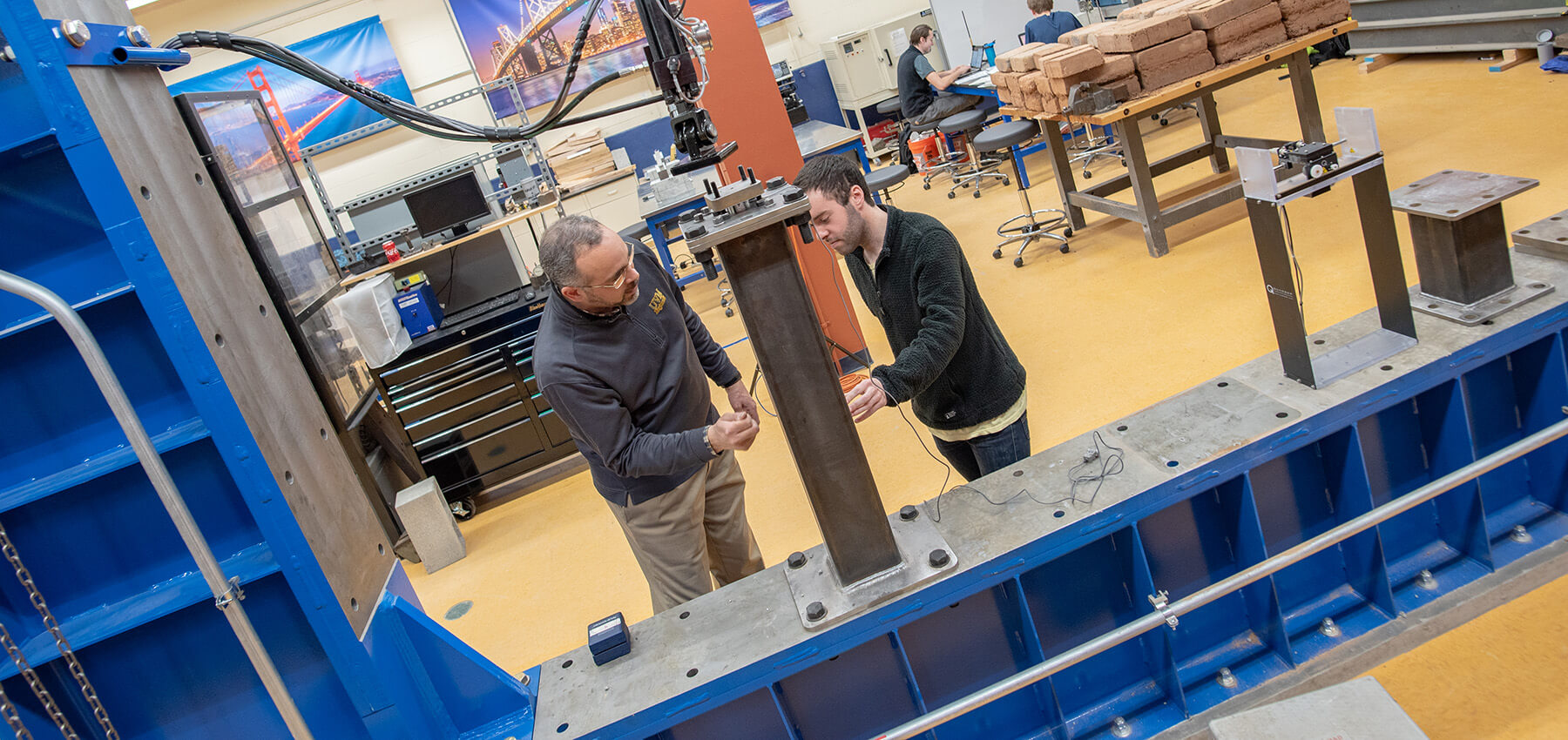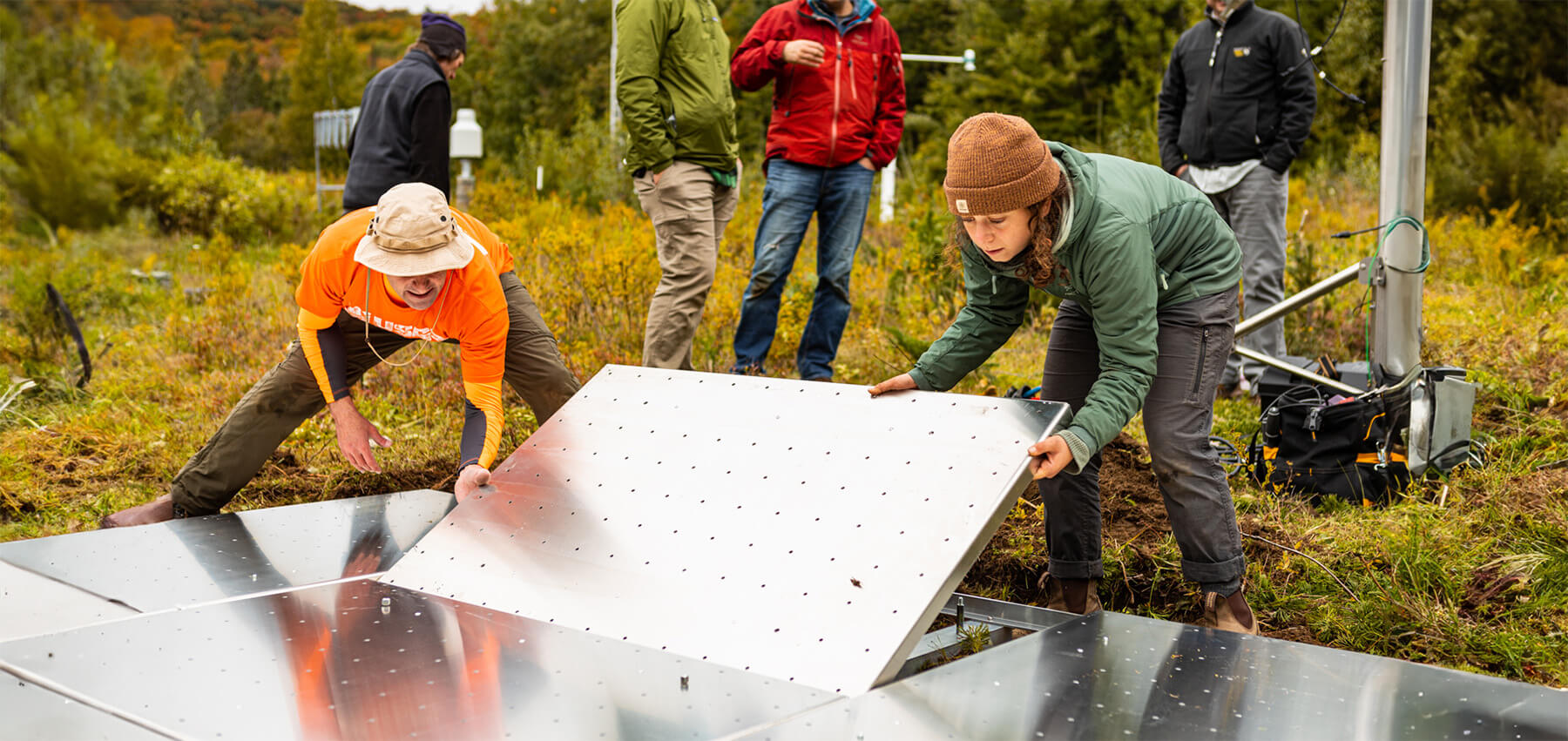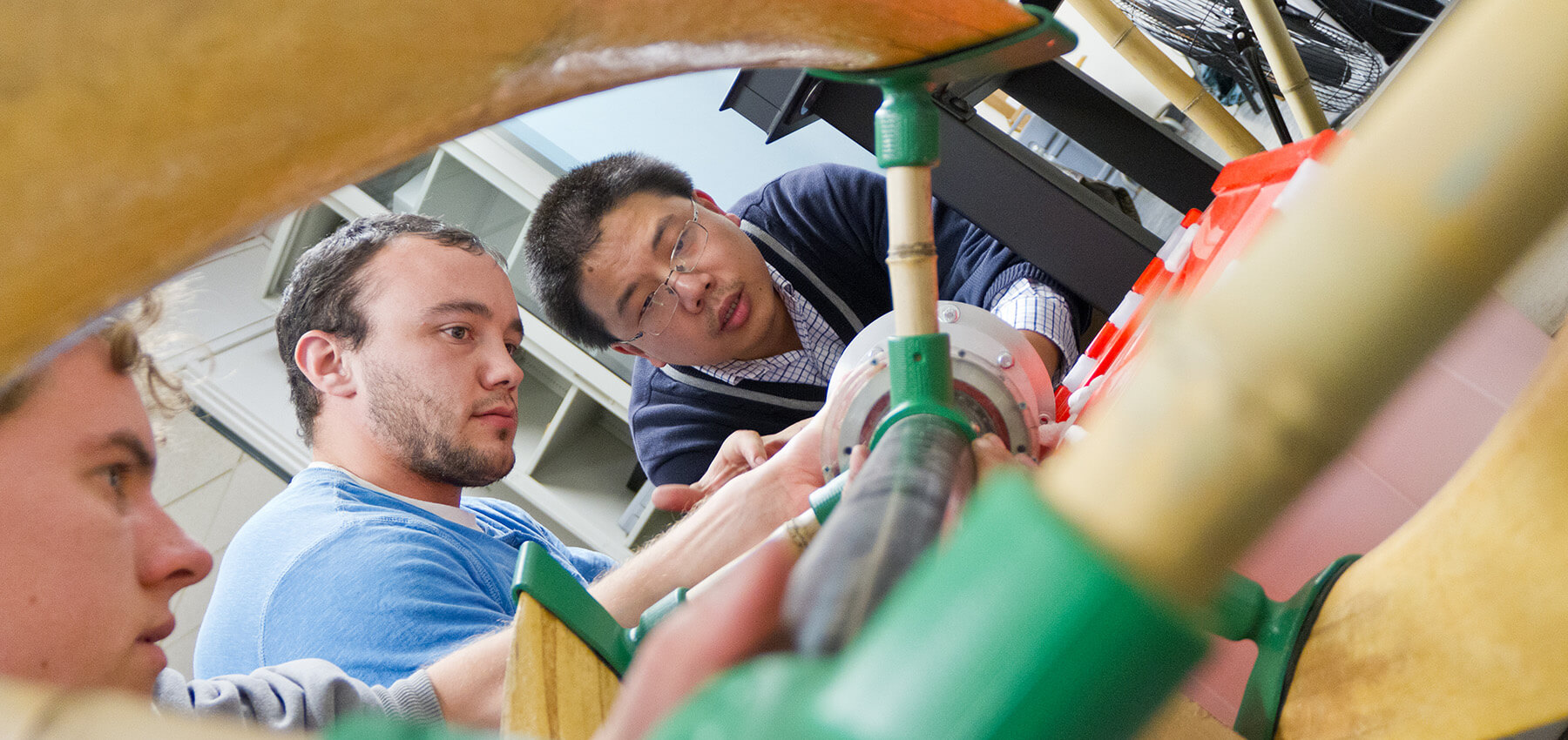Graduate study in Civil and Environmental Engineering at UVM prepares you to advance your career and lead innovation in environmental, geotechnical, water resources, structural, materials, transportation, and other vital engineering fields.
Learn more about the research some of our graduate students are doing across the department:


